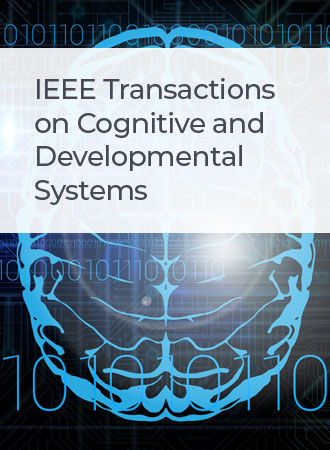Progressive-Learning-Based Assist-as-Needed Control for Ankle Rehabilitation
IF 4.9
3区 计算机科学
Q1 COMPUTER SCIENCE, ARTIFICIAL INTELLIGENCE
IEEE Transactions on Cognitive and Developmental Systems
Pub Date : 2024-09-06
DOI:10.1109/TCDS.2024.3455795
引用次数: 0
Abstract
This article proposes a progressive-learning-based assist-as-needed (AAN) control scheme for ankle rehabilitation. To quantify the training performance, a fuzzy logic (FL) system is established to generate a holistic metric based on multiple kinematic and dynamic indicators. Subsequently, a cost function that contains both the tracking error and robot stiffness is constructed. A novel learning scheme is then proposed to enhance subjects’ engagement, leveraging the FL metric to uphold a declining trend in the robot's stiffness. The system stability is analyzed using the Lyapunov theory, the control ultimate bounds are specified and the effects of parameter tuning are discussed. Experiments are conducted on an ankle robot and the minimal assist-as-needed (MAAN) scheme is adopted for comparison. With a training session consisting of 11 trials, the quantitative performance evaluations, individual error convergences, progressive stiffness learning and human–robot interaction are evaluated. It is shown that within eight trials under the progressive AAN and MAAN, the robot assistive torques have an average reduction of 13.45% and 20.25% while subjects’ active torques are increased by 56.53% and 58.39%, respectively. During the late stage of training, the progressive AAN further improves two criteria by 9.44% and 6.29%, while the MAAN partially loses subjects’ participation (active torques are reduced by 36.38%) due to the occurrence of motion adaption.基于渐进学习的踝关节康复 "按需辅助 "控制系统
本文提出了一种基于渐进式学习的踝关节康复辅助控制方案。为了量化训练效果,建立了一个模糊逻辑(FL)系统,生成基于多个运动和动态指标的整体度量。然后,构造了包含跟踪误差和机器人刚度的代价函数。然后提出了一种新的学习方案来提高受试者的参与度,利用FL指标来维持机器人刚度的下降趋势。利用李雅普诺夫理论分析了系统的稳定性,确定了控制极限界,讨论了参数整定的影响。在踝关节机器人上进行了实验,采用最小按需辅助(MAAN)方案进行比较。通过11次试验的训练,评估了定量性能评估、个体误差收敛、渐进式刚度学习和人机交互。结果表明,在渐进式AAN和MAAN的8个实验中,机器人的辅助扭矩平均减少了13.45%和20.25%,而受试者的主动扭矩分别增加了56.53%和58.39%。在训练后期,渐进式AAN进一步提高了9.44%和6.29%的两个标准,而由于运动适应的发生,MAAN部分失去了被试的参与(主动扭矩降低了36.38%)。
本文章由计算机程序翻译,如有差异,请以英文原文为准。
求助全文
约1分钟内获得全文
求助全文
来源期刊

IEEE Transactions on Cognitive and Developmental Systems
Computer Science-Software
CiteScore
7.20
自引率
10.00%
发文量
170
期刊介绍:
The IEEE Transactions on Cognitive and Developmental Systems (TCDS) focuses on advances in the study of development and cognition in natural (humans, animals) and artificial (robots, agents) systems. It welcomes contributions from multiple related disciplines including cognitive systems, cognitive robotics, developmental and epigenetic robotics, autonomous and evolutionary robotics, social structures, multi-agent and artificial life systems, computational neuroscience, and developmental psychology. Articles on theoretical, computational, application-oriented, and experimental studies as well as reviews in these areas are considered.
 求助内容:
求助内容: 应助结果提醒方式:
应助结果提醒方式:


